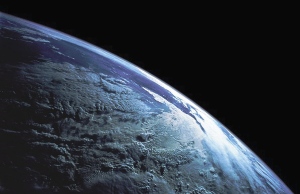
If you listen to me speak, or follow me on Facebook, or read my blog, you will get an idea of my moral and ethical principals. You might even think I’m radical, or going against the grain.
But what if I never spoke a word. What if I never typed a sentence. What if I never shared a meme, or article, or video via social media. Would my values still be clear? Judging solely based on my actions, would you see me as a peaceful parent? Not likely. Looking at my possessions, would you see me as a minimalist? That’s doubtful. Observing my eating habits, would you find me to be a health nut? Not even close. Does the way I live my life even come close to reflecting any of the bold statements I make on a daily basis? No.
I, my friends, am a fraud and a hypocrite. I say one thing, and do another. Because it’s much easier to say, isn’t it? It requires no effort, no sacrifice, no change. When I say “This is who I am” what I am really saying is “This is who I would be, if I wasn’t so damned scared.”
I know that I am not the only one. I know that there are millions more like me, who beat the drum of sustainability, and freedom; oneness, and peace, but when it comes to real, meaningful change, we are full of excuses.
I don’t know when it happened, but some time not too long ago our society was given a choice. We could either make some serious changes in the way we live our lives, or we could become cold, calloused and uncaring. Sad as it is to say, we chose the latter. We could never live our fast-food, consumerist, on-demand, high tech lifestyle while at the same time having a deep awareness of the implications of our actions. So we chose to forget it. To put up mental barriers, and block the consequences of our decisions from our minds.
But as much as we blind ourselves, those uncomfortable images do slip in from time to time. Baby seals covered in oil. Massive plastic islands. Impenetrable smog clouds. So, we do what any level headed, clear thinking species would do. Make a few easy, small, “band-aid” changes that don’t actually address the problem, but give us the feeling that we are making a difference. “Look! The package for these plastic bags is made from 75% recycled material!” or “This chocolate is Rainforest Alliance Certified!” It is good that people want to save the rainforest. It’s good that we have recycling programs. But at the rate we are going, we need much more drastic and immediate action if we want to sustain life on this planet. Imagine a man planning to sell his house, and move to another country. He checks his calendar, and sees that the date is getting closer, so he goes out and purchases a fanny pack. No airline ticket, no realtor’s sign in his front yard. Just a fanny pack. That is where we are as a society.
The other coping mechanism, as I already mentioned, is to be very vocal about issues without actually making any lifestyle changes. Maybe our friend with the fanny pack can purchase a shirt with an image of his new country’s flag, and tell everyone how great it is over there. Now he’s ready.
At some point we will awaken from our comatose state. When we do we will either look around and start making the necessary changes to save our planet, or we will look around and realize that it’s too late.



